10 Essential Tools for Homesteading Success – Don’t Miss Out!
If you’re interested in living a self-sufficient lifestyle and becoming more self-reliant, homesteading may be the perfect fit for you. Homesteading involves growing your own food, producing your own energy, and living sustainably. It’s a throwback to the rural lifestyle that many of our ancestors used to practice. In this article, we’ll provide a quick start guide to homesteading for beginners, covering many of the fundamentals you can implement to start living the good life, one step at a time.
Whether you live in the city or the country, homesteading is a way to become more self-sufficient and reduce your reliance on others. It’s a lifestyle that can be adapted to fit your needs, whether you’re starting with a small homestead or a larger property. By growing your own food and producing your own energy, you can reduce your carbon footprint and live a more sustainable lifestyle. In this article, we’ll cover the basics of homesteading for beginners, including how to get started, what you’ll need, and some tips for success.
Homesteading for beginners can be an exciting and rewarding journey, but it can also be overwhelming and intimidating. There’s a lot to learn, and it can be difficult to know where to start. But with the right mindset and a willingness to learn, anyone can become a successful homesteader. Whether you’re looking to live off the grid, reduce your carbon footprint, or simply become more self-sufficient, homesteading is a lifestyle that can provide many benefits. In the following paragraphs, we’ll provide a quick start guide to homesteading for beginners, covering everything you need to know to get started.
Disclosure: As an Amazon affiliate, I earn from qualifying purchases at no extra cost to you. My blog contains other affiliate links as well for your convenience. To learn more, you may read my Disclosure Policy. Thank you for supporting my blog!
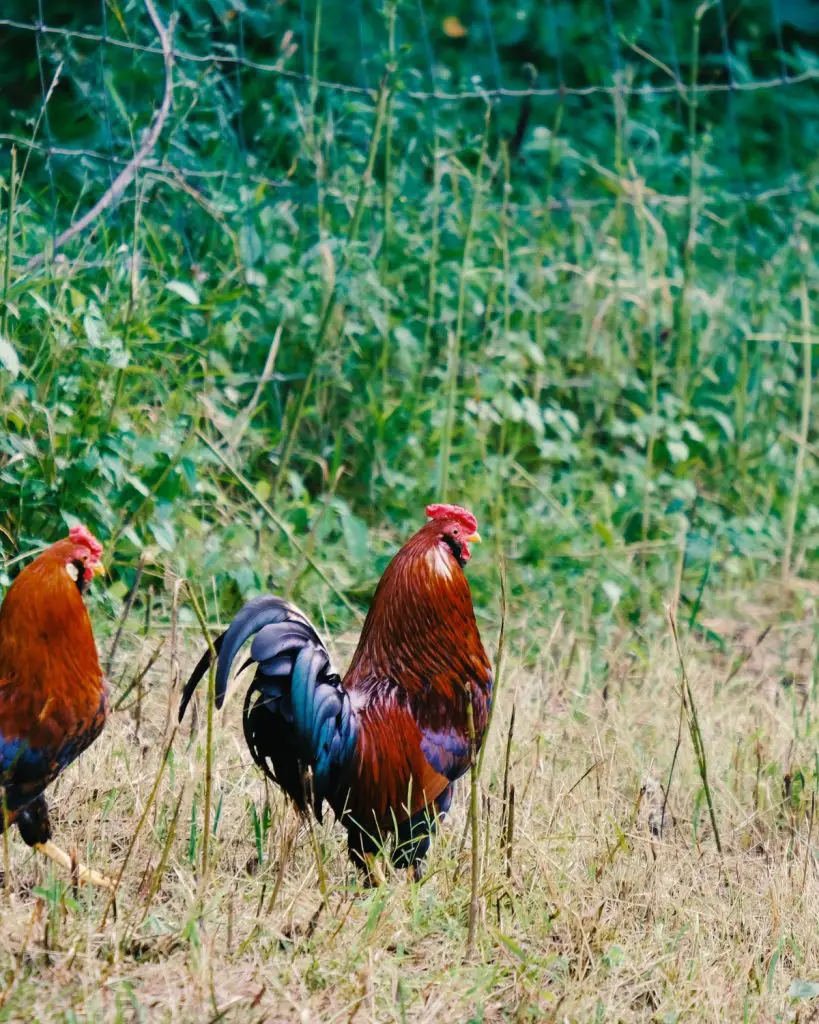
Why Homesteading?
Homesteading is a lifestyle that has been gaining popularity in recent years. It involves living a self-sufficient life, growing your own food, producing your own energy and being in control of your own destiny. There are many reasons why you might want to consider homesteading.
Connection with Nature
Living a homesteading lifestyle allows you to connect with nature in a way that is not possible in urban or suburban environments. You will be able to spend more time outdoors, breathe fresh air, and enjoy the beauty of the natural world. Homesteading can help you to develop a deeper appreciation for the environment and the role that you play in it.
Simpler Life
Homesteading is all about simplifying your life. You will learn to live with less and focus on what is truly important. By growing your own food, you will be able to eat healthier and more sustainably. You will be able to reduce your reliance on commercial products and learn to make your own.
Food Source
One of the most significant benefits of homesteading is having access to fresh, healthy food. By growing your own fruits and vegetables, you can ensure that you are eating food that is free from harmful chemicals and pesticides. You will also be able to save money on groceries and reduce your carbon footprint by reducing the distance that your food has to travel.
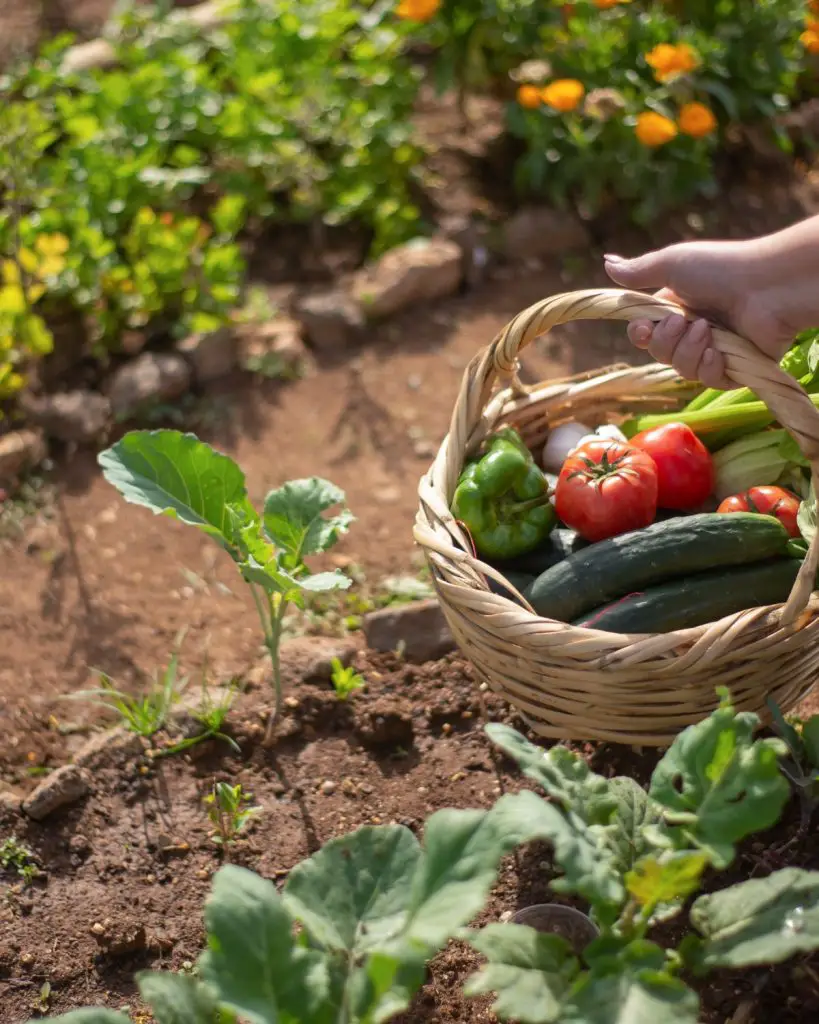
Renewable Energy
Homesteading allows you to take control of your energy needs. By using renewable energy sources such as solar or wind power, you can reduce your reliance on fossil fuels and reduce your carbon footprint. You can also save money on your energy bills by producing your own energy.
Income
Homesteading can also provide an opportunity to generate income. By selling excess produce, eggs, or other products, you can create a small business that can help support your homesteading lifestyle. This can be a great way to supplement your income while living a simpler, more sustainable life.
In summary, homesteading offers many benefits, including a deeper connection with nature, a simpler life, access to fresh food, and the opportunity to generate income. It can be a challenging lifestyle, but it is also a rewarding one that can provide a sense of purpose and fulfillment.
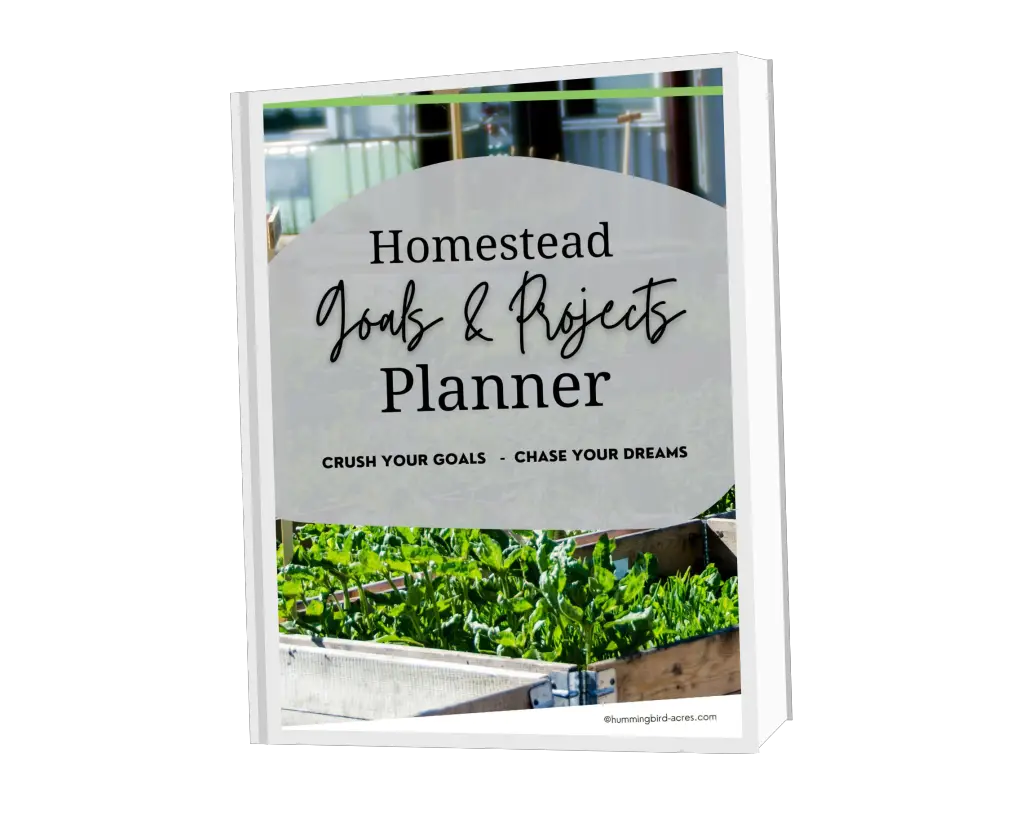
Grab Our Planner
Homestead Goal & Project Planner
Set Goals and Achieve them with our proven system.
Getting Started with Homesteading
If you’re interested in homesteading, there are a few things you should consider before starting your homesteading journey. Here are some steps to help you get started:
Setting Goals
The first step to starting your homesteading journey is to set goals. What do you want to achieve with homesteading? Do you want to grow your own food, raise animals, or become more self-sufficient? Setting goals will help you determine what skills and resources you need to start homesteading.
Researching and Planning
Once you have set your goals, it’s time to research and plan. You can start by researching homesteading skills and resources. There are many resources available online and in books that can help you learn the skills you need to start homesteading. You can also research the best location for your homestead, the type of land you need, and the climate in your area.
Planning is also an important step in starting your homesteading journey. You should create a homesteading plan that includes your goals, budget, and timeline. This will help you stay organized and on track as you start homesteading.

Buying Land
Buying land is one of the biggest investments you’ll make when starting your homesteading journey. When buying land, it’s important to consider the type of land you need for your homestead. You’ll want to look for land that has good soil, access to water, and is in a location that is suitable for your homesteading goals.
Before buying land, you should also consider your budget. Land can be expensive, so it’s important to set a budget and stick to it. You may also want to consider financing options or purchasing land with other homesteaders to reduce costs.
Starting your homesteading journey can be exciting, but it’s important to take the time to set goals, research and plan, and buy the right land. With the right skills and resources, you can start homesteading and achieve your self-sufficiency goals.
Homesteading Skills and Practices
If you’re new to homesteading, you might feel overwhelmed by the many skills and practices that come with it. However, don’t worry! With some research and practice, you can learn the necessary skills to be a successful homesteader. In this section, we’ll cover some of the most essential homesteading skills and practices, including gardening and farming, raising animals, and food preservation.
Gardening and Farming
One of the most important skills for homesteading is gardening and farming. Growing your own food is not only satisfying, but it can also save you money and provide you with fresh, healthy produce. To start, research the crops that grow best in your area and plan your garden accordingly. Consider using raised garden beds to make gardening easier and more efficient.
In addition to traditional gardening, you may also want to explore permaculture and food forests. These practices involve planting a variety of crops that work together to create a self-sustaining ecosystem. They can be a great way to maximize your garden’s potential and reduce the amount of work you need to do.
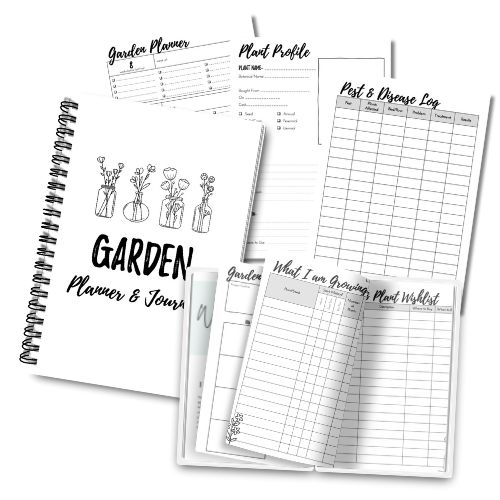
Get our
Garden Planner & Journal
Everything you need to start and maintain a successful garden. Take the guess work out of what to plant where and when to start your seeds.
Raising Animals
Raising animals is another important aspect of homesteading. Whether you’re interested in raising chickens for eggs or meat, or keeping goats for milk, there are many benefits to having livestock on your homestead. However, it’s important to do your research and make sure you have the space, resources, and knowledge to care for your animals properly.
When raising animals, it’s essential to provide them with adequate shelter, food, and water. You’ll also need to learn how to care for them when they’re sick or injured. Additionally, if you’re raising chickens, you’ll need to consider the issue of roosters and noise, as they can be disruptive to neighbors.
Food Preservation
Finally, food preservation is a crucial skill for homesteaders. Canning, dehydrating, and fermenting are all effective ways to preserve your harvest and extend your food supply. However, it’s important to follow safe food preservation practices to avoid the risk of foodborne illness.
When canning, be sure to use a pressure canner for low-acid foods like vegetables and meats. Water bath canning is suitable for high-acid foods like fruits and tomatoes. Dehydrating is a great way to preserve fruits and vegetables, and it’s easy to do with a dehydrator or oven. Fermenting is another effective way to preserve food and create flavorful, probiotic-rich foods like sauerkraut and kimchi.
In conclusion, homesteading requires a wide range of skills and practices. However, with research and practice, you can learn the necessary skills to be a successful homesteader. Gardening and farming, raising animals, and food preservation are all essential skills that will help you achieve self-sufficiency and sustainability on your homestead.
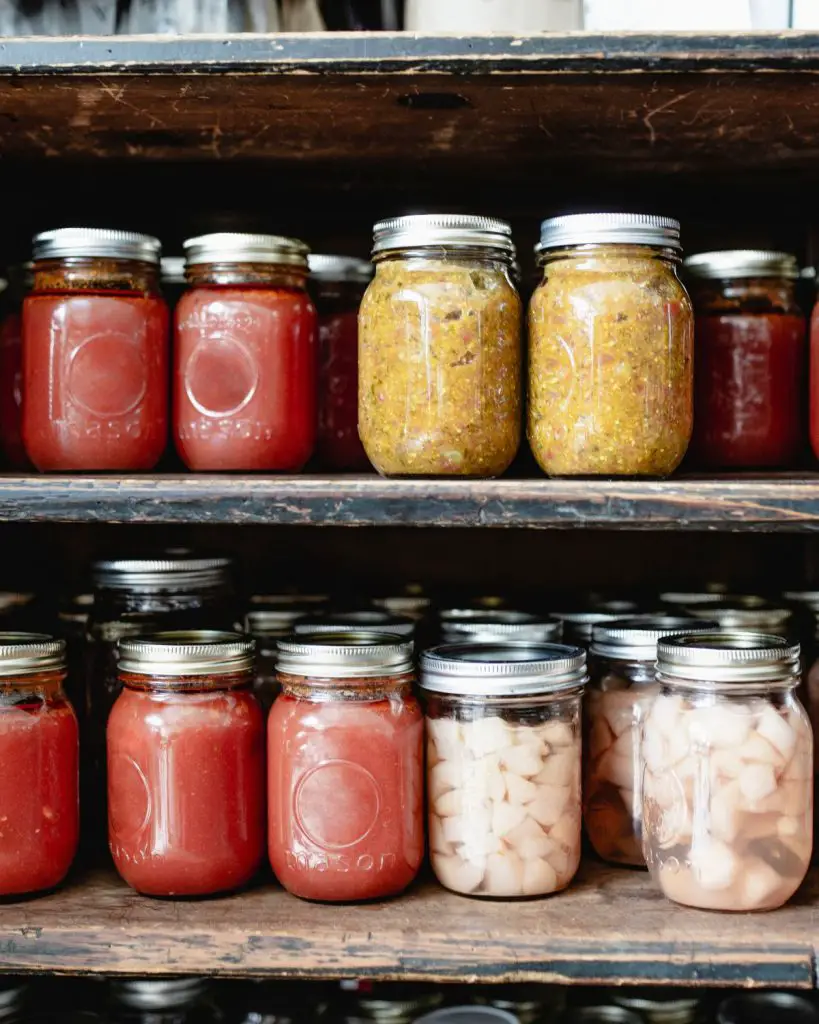
Building a Homestead Community
Starting a homestead can be an exciting and rewarding experience, but it can also be overwhelming and challenging. One way to make the journey easier is to build a homestead community. Here are some ways to connect with others and find support:
Finding Support
Homesteading can be a lonely venture, especially if you’re doing it on your own. Finding support from like-minded individuals can make a big difference. Joining a homesteading group or forum can be a great way to connect with others who share your interests. You can exchange ideas, ask for advice, and get support when you need it.
Classes and Education
Taking classes and attending workshops can be a great way to learn new skills and connect with others. Many community colleges and universities offer classes on topics like gardening, animal husbandry, and renewable energy. Local homesteading groups may also offer workshops on topics like beekeeping, fiber arts, and pickling.
Connecting with Local Farmers
Getting to know local farmers can be a great way to learn about sustainable farming practices and connect with others who share your interests. Visiting farmers markets and attending local agricultural fairs can be a great way to meet farmers and learn about their experiences. You can also consider volunteering at a local farm or joining a community-supported agriculture (CSA) program.
Building a homestead community can be a great way to find support, learn new skills, and connect with others who share your interests. Whether you’re raising chickens, growing a kitchen garden, or using renewable energy, there are others out there who are doing the same thing. By connecting with others, you can build a network of support and guidance that can help you achieve your homesteading goals.
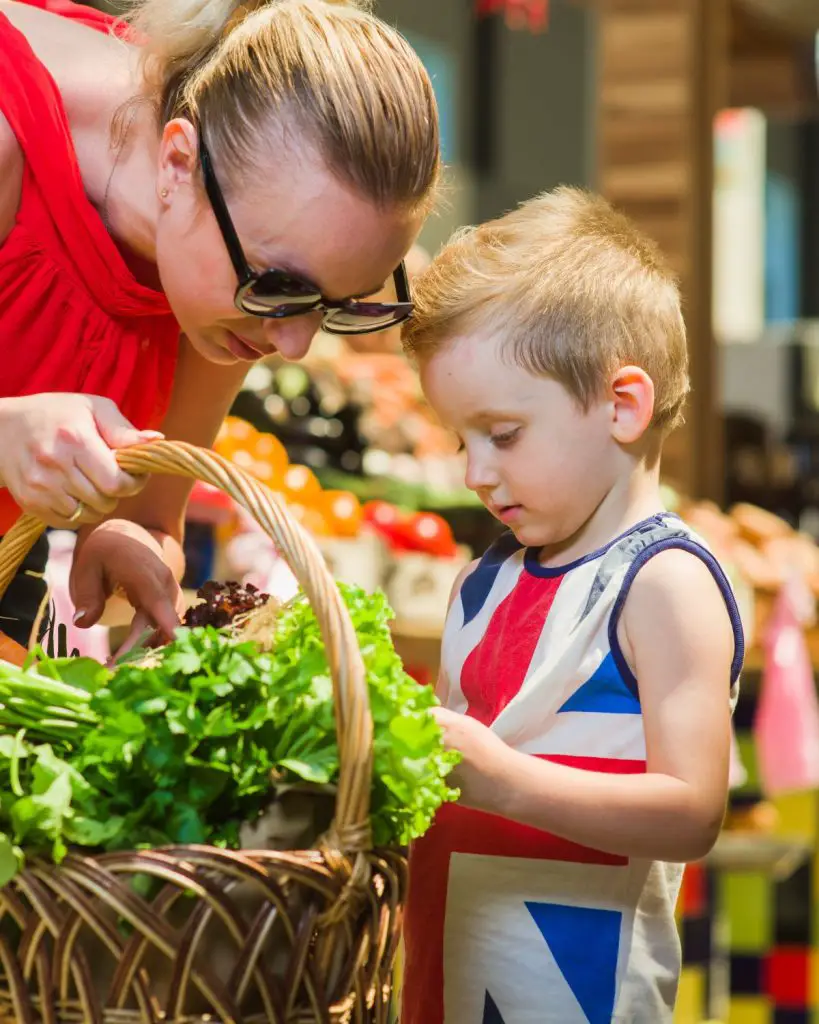
Homesteading can be a fulfilling and rewarding experience, but it takes hard work, dedication, and knowledge of the basics. It is essential to research all aspects of homesteading in order to be successful and understand what processes work best for your particular lifestyle and family dynamic.
Learning how to start homesteading for beginners may seem overwhelming at first, however you don’t have to do it alone. Thankfully, there are many resources online that offer guidance as well as experienced homesteaders who can provide support or tips based on their own individual knowledge.
In conclusion, if you are seriously considering embarking on the journey towards becoming a homesteader, make sure you take the time to learn all that you need in order to succeed. To further assist your homesteading effort why not download our FREE e-book which covers all the primary concepts essential to making your homesteading efforts a success!
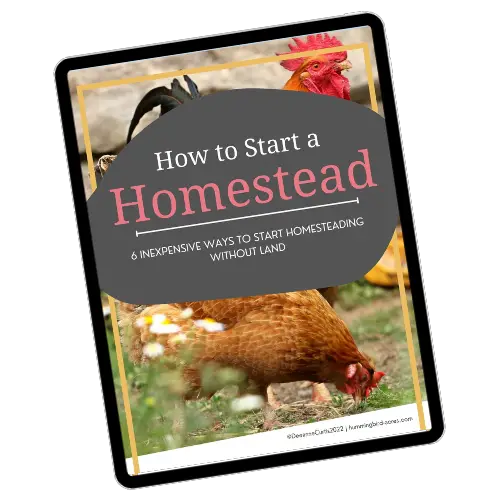
Grab my free Guide
How to Start a Homestead
6 Inexpensive Ways to Start Homesteading without Land.
Enter your name & email so we can send your our FREE Guide.
You may also enjoy these related articles:
- Best Way to use Worm Compost Bins
- Decorating Garden Ideas | Create a Garden You Love
- Growing in Landscape Mesh for a No Weed Garden
Did you enjoy this article? Want to hear more? Stay in touch! Sign up below to receive weekly tips and inspiration for your homestead.

